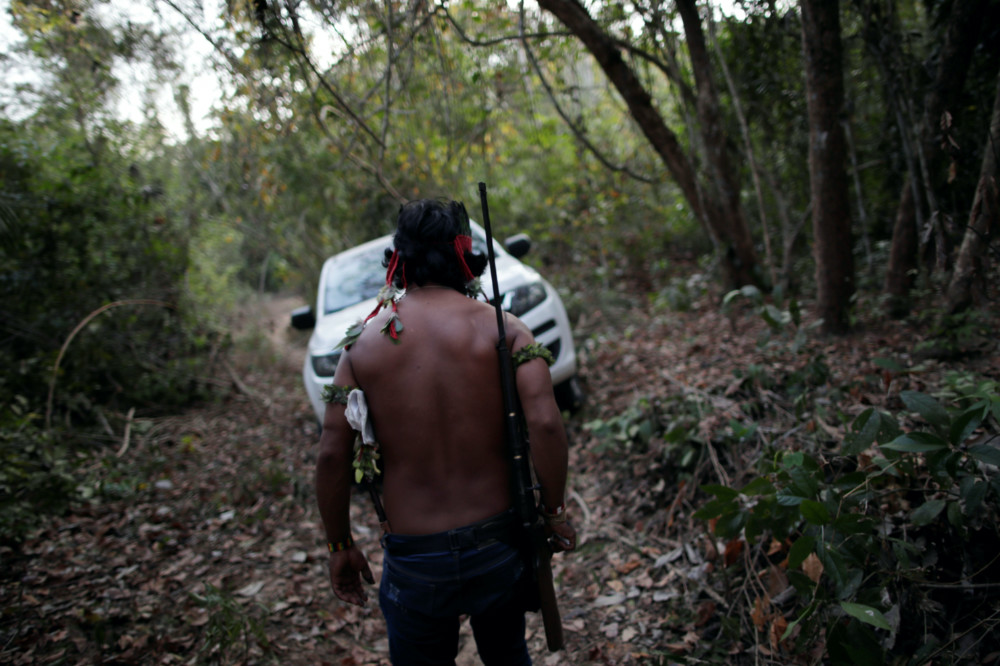Bogota, Colombia
Thomson Reuters Foundation
As the “best guardians” of Latin America’s forests, Indigenous tribes need greater access to climate finance and secure land tenure to stem deforestation and climate change, the United Nations said on Thursday.
Tribal lands hold about a third of the carbon stored in Latin America’s forests, the UN’s Food and Agriculture Organization said in a review of more than 300 studies published in the last two decades.

A Guajajara Indian “forest guardian” walks through the forest searching illegal loggers on Arariboia indigenous land near the city of Amarante, Maranhao state, Brazil, on 10th September, 2019. PICTURE: Reuters/Ueslei Marcelino
“Indigenous and tribal peoples and the forests in their territories play vital roles in global and regional climate action and in fighting poverty, hunger, and malnutrition,” FAO’s regional representative Julio Berdegue said in a statement.
Scientists say forests are key to slowing climate change as they absorb vast amounts of planet-warming carbon dioxide.
In nearly every Latin American country, Indigenous lands showed lower deforestation rates, and forest loss is lowest in Indigenous lands with secure land tenure and collective land titles, the report said.
This is because Indigenous peoples do not “engage much in extensive cattle ranching or mechanised agriculture” – two of the main causes of forest loss in Latin America, it said.
In Brazil, Bolivia and Colombia, Indigenous lands with collective land titles prevented 42.8 to 59.7 million metric tons of carbon emissions – equal to that of 9 to 12.6 million vehicles – each year from 2000 to 2012, the report said.
Nearly half of the intact forests in the Amazon Basin are in indigenous lands, showing the crucial role of tribal communities, said Myrna Cunningham, a Nicaraguan indigenous activist and researcher for the report.
Latin America’s Indigenous areas lost less than half as much intact forest – 4.9 per cent – between 2000 and 2016 as non-Indigenous areas, which lost 11 per cent, she said.
At least six countries in Latin America pay indigenous communities to manage and protect forests, which has stemmed deforestation and illegal logging on their lands in Ecuador and Mexico, the report said.
“When there is [financial] compensation that complements the income of indigenous peoples, there is more forest protection,” said Cunningham, who heads the Fund for the Development of Indigenous Peoples of Latin America and the Caribbean (FILAC).
“For Indigenous people, land and territory do not have an economic value but a spiritual one,” Cunningham of FILAC, which co-authored the report, told the Thomson Reuters Foundation.
Governments must also ensure ancient indigenous skills, such as managing fires by controlled burning, are preserved and provide funding to improve access to markets for traditional items like woven fabrics, she said.






